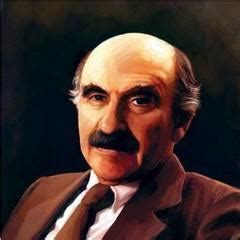A Quote by Theodor Adorno
Newness only becomes mere evil in its totalitarian format, where all the tension between individual and society, that once gave rise to the category of the new, is dissipated. Today the appeal to newness, of no matter what kind, provided only that it is archaic enough, has become universal, the omnipresent medium of false mimesis. The decomposition of the subject is consummated in his self-abandonment to an ever-changing sameness.
Quote Topics
Abandonment
Appeal
Archaic
Become
Becomes
Between
Category
Changing
Decomposition
Enough
Ever
Ever-Changing
Evil
False
Format
Gave
His
Individual
Kind
Matter
Medium
Mere
Mimesis
New
Newness
No Matter What
Omnipresent
Once
Only
Provided
Rise
Sameness
Self
Society
Subject
Tension
Today
Totalitarian
Universal
Related Quotes
The world is for newness, not for oldness. New, new things we have to create. Then only the world will progress. If not, we will come to feel that there is nothing new under the sun. We have to create new things to keep our joy. If there is no newness, how can we have enthusiasm? And if there is no enthusiasm, do we make any progress?
"Consider the matter dispassionately, Mr. Foster, and you will see that no offence is so heinous as unorthodoxy of behaviour. Murder kills only the individual- and after all, wha is an individual? ". . . ." We can make a new one with the greatest of ease- as many as we like. Unorthodoxy threatens more than the life of a mere individual; it strikes at Society itself."
Once efficiency is universally accepted as a rule, it becomes an inner compulsion and weighs like a sense of sin, simply because no one can ever be efficient enough, just as no one can ever be virtuous enough. And this new sense of sin only contributes further to the enervation of leisure, for the rich as well as the poor. The difficulty of carrying on a leisure-oriented tradition of culture in a work-oriented society is enough in itself to keep the present crisis in our culture unresolved.
If the world is an aggregate of relatively independent regions, then any assumption of universal laws is false and a demand for universal norms tyrannical: only brute force (or seductive deception) can then bend the different moralities so that they fit the prescriptions of a single ethical system. And indeed, the idea of universal laws of nature and society arose in connection with a life-and-death battle: the battle that gave Zeus the power over the Titans and all other gods and thus turned his laws into the laws of the universe.
Totalitarianism, however, does not so much promise an age of faith as an age of schizophrenia. A society becomes totalitarian when its structure becomes flagrantly artificial: that is, when its ruling class has lost its function but succeeds in clinging to power by force or fraud. Such a society, no matter how long it persists, can never afford to become either tolerant or intellectually stable.




































